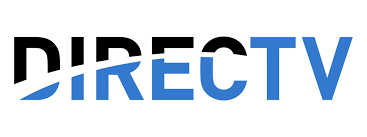AWS Graviton Processors
Get the best price performance for cloud workloads running on Amazon EC2
Try Amazon EC2 t4g.small instances powered by AWS Graviton2 processors free for up to 750 hours per month until Dec 31, 2024.
Sign up to preview Amazon EC2 R8g instances powered by AWS Graviton4 processors. Learn more »
EC2 Instances Powered by AWS Graviton Processors
-
General Purpose
-
Compute Optimized
-
Memory Optimized
-
Storage Optimized
-
Accelerated Computing
-
General Purpose
-

M7g, M7gd: Best price performance for general purpose workloads with balanced compute, memory, and networking
Powered by: AWS Graviton3
Built for: General purpose workloads such as application servers, midsize data stores, microservices, and cluster computing.

T4g: Best price performance for burstable general purpose workloads
Powered by: AWS Graviton2
Built for: Broad range of burstable general purpose workloads such as large scale microservices, small and medium databases, virtual desktops, and business-critical applications.
-
Compute Optimized
-

C7g, C7gd, C7gn: Best price performance for compute-intensive workloads
Powered by: AWS Graviton3, AWS Graviton3E
Built for: Compute-intensive applications such as high performance computing, video encoding, gaming, and CPU-based machine learning inference acceleration.

C6g, C6gd, C6gn: Cost savings for compute and network-intensive workloads
Powered by: AWS Graviton2
Built for: Compute-intensive applications such as HPC, video encoding, gaming, and CPU-based ML inference.
-
Memory Optimized
-

R7g, R7gd: High price performance for memory-intensive workloads
Powered by: AWS Graviton3
Built for: Memory-intensive workloads such as open-source databases (MySQL, MariaDB, and PostgreSQL), or in-memory caches (Redis, KeyDB, Memcached).

R8g: Best price performance for memory-intensive workloads
Powered by: AWS Graviton4
Built for: Memory-intensive workloads such as high-performance databases, in-memory caches, and real-time big data analytics.

R7g, R7gd: High price performance for memory-intensive workloads
Powered by: AWS Graviton3
Built for: Memory-intensive workloads such as open-source databases (MySQL, MariaDB, and PostgreSQL), or in-memory caches (Redis, KeyDB, Memcached).

X2gd: Lowest cost per GiB of memory in Amazon EC2
Powered by: AWS Graviton2
Built for: Memory-intensive workloads such as open-source databases (MySQL, MariaDB, and PostgreSQL), in-memory caches (Redis, KeyDB, Memcached), electronic design automation (EDA) workloads, real-time analytics, and real-time caching servers.
-
Storage Optimized
-

Im4gn: Best price performance for storage-intensive workloads
Powered by: AWS Graviton2
Built for: SQL databases (MySQL, MariaDB, PostgreSQL), NoSQL databases (Cassandra, ScyllaDB, MongoDB), search engines, analytics, streaming, and large distributed file systems.

Is4gen: Lowest cost per TB of SSD storage in Amazon EC2
Powered by: AWS Graviton2
Built for: SQL databases (MySQL, MariaDB, PostgreSQL), NoSQL databases (Cassandra, ScyllaDB, MongoDB), search engines, analytics, streaming, and large distributed file systems.
-
Accelerated Computing
-

G5g: Best price performance for Android game streaming
Powered by: AWS Graviton2
Built for: Graphics applications including Android game streaming and ML inference.
Local NVMe-based SSD storage options are also available in general-purpose (M6gd), compute-optimized (C6gd), and memory-optimized (R6gd) instances. Additionally, compute-optimized C6gn and C7gn instances with enhanced networking and support for Elastic Fabric Adapter (EFA) are also available.
Use cases
Run a broad set of cloud workloads
Use Graviton-based instances to support application servers, microservices, open-source databases, and high performance computing (HPC).
Optimize cost
AWS Graviton-based instances cost up to 20% less than comparable x86-based Amazon
EC2 instances.
Achieve sustainability goals
AWS Graviton-based instances use up to 60% less energy than comparable EC2 instances.
Customers
-
Datadog
-

"We can keep costs constants but deliver more value. That efficiency then is translated back for our customers, delivering more features per compute cycles or serving more customers with an identical number of cores."
Alexis Le-Quoc
Co-Founder and Chief Technology Office, Datadog Inc. -
Instructure
-

"We use AWS Graviton3 instances in a number of places in our stack. They've provided us as much as 20% improvement in throughput and in cost savings versus older instances types."
Zach Pendleton
Chief Architect, Instructure -
Instructure
-

"We chose AWS Graviton for SAP HANA Cloud. From a business point of view, the result that we are seeing in the actual deployments is an up to 35% performance or price performance improvement for analytical workloads."
Stefan Baeuerle
SVP, Head of Database, SAP -
Sprinklr
-


"On AWS Graviton-based instances, we can build more features that before were either expensive or not feasible.”
Nitin Goyal
Vice President of Engineering, Sprinklr -
Zendesk
-
.9082d109f3e60b5b6594eb3789430625a65b0d2d.jpg)

After migrating to Graviton-based instances, Zendesk improved performance by up to 30 percent, reduced costs by up to 42 percent, and achieved better environmental sustainability while increasing its capacity for innovation.
-
Zomato
-


"AWS Graviton has helped us improve the price performance of our data platform by 25 percent. Moving to AWS Graviton-based instances was the fastest and easiest way to achieve our goals with little tweaks. The entire process, including testing, took us two weeks.”
Rajat Taya
Senior Software Engineer, Zomato
How to get started
Quickly migrate to AWS Graviton-based instances
See our step-by-step guide, workload guidance, and best practices.
Build and run your applications on AWS Graviton-based instances
Use the AWS Graviton Technical Guide GitHub Repository to build applications on Graviton.
Accelerate your migration with Porting Advisor for Graviton
Use Porting Advisor for Graviton to resolve source code and library dependencies.






